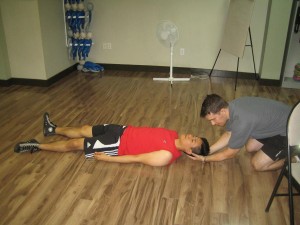Fact Checked
Overview Of Fainting
- Fainting takes place when there is a decreased flow of blood to the brain.
- A person may also experience a fainting spell which is generally short-lived and not dangerous.
- It might or might not point to a severe underlying issue. A medical expert will be able to advise you.
Common Causes Of Fainting

- When a person is feeling stressed.
- A person is emotionally distressed.
- A person is experiencing some form of anxiety.
- Fainting might be from a result of extreme pain.
- If you skip meals, you might feel faint.
- When a person gets up too quickly, they can feel faint.
- Standing on your feet for long periods of time.
- Some prescriptions can cause you to feel faint.
- Diabetes especially when the sugar levels drop.
- Blood pressure.
Symptoms Of Fainting
A person might experience the following before fainting:
- Feeling nausea.
- Light-headedness.
- Extreme sweating.
- Vision might appear blurred.
- Heartbeat is fast or palpitations may occur.
Treatment For Fainting
- Fainting is considered a medical crisis until confirmed otherwise.
- When an individual feels like fainting, let them sit down for a while.
- If the person is seated, place their head in between their knees.
- When an individual faints, place them on their back.
- Look to see if the airway is clear and not obstructed.
- Make sure you untie any loose clothing to allow proper blood flow.
- Lift their feet above the level of their head so blood can flow.
- The casualty should return to normal after a few minutes.
- Get medical help if the casualty doesn’t return to normal.
- Examine to see if the casualty is breathing and if they have a pulse.
- If you don’t see any signs of breathing, begin CPR immediately.
Prevention For Fainting
- When fainting signs appear, relax and lie down.
- Try to eliminate worry and anxiety from your life.
- Ask your doctor which of your medications might cause fainting.